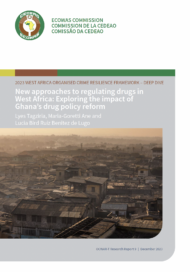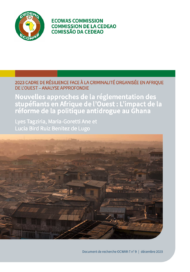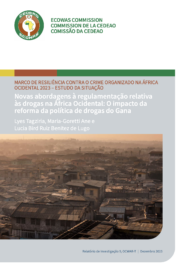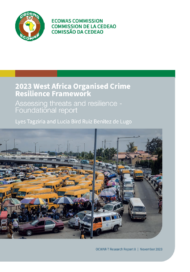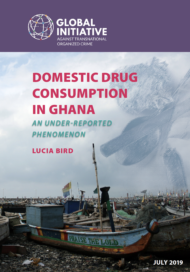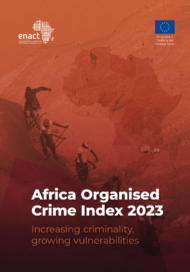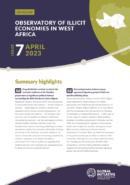Posted on 31 Jan 2024
The 2023 West Africa Organized Crime Resilience Framework (OCRF) is a tool developed by the GI-TOC as part of the Organised Crime: West African Response to Trafficking (OCWAR-T) project. The OCRF sets out the organized crime and security landscape across West Africa, identifying the key risks and vulnerabilities in West African states, as well as providing a nuanced analysis of states’ resilience. Three deep dives focus on informing and assessing existing responses and gearing these towards prevention.
- New approaches to regulating drugs in West Africa: Exploring the impact of Ghana’s drug policy reform
- Self-defence groups as a response to crime and conflict in West Africa: Learning from international experience
- Climate change, illicit economies and community resilience: Niokolo-Koba National Park, Senegal
In an era of drug policy reform, West African states in the ECOWAS region are reassessing their strategies in response to escalating harms from drug markets. This report centers on Ghana’s pioneering approach, providing a crucial lens to the evolution of drug regulations.
West Africa, a significant transit point for illicit drugs, particularly cocaine, witnesses a growing influx of varied synthetic substances. The region endures a radical rise in cocaine directed from Latin America to European markets, constituting a challenge highlighted by the Organized Crime Resilience Framework (OCRF).
Reinforced by data from GI-TOC’s Global Organized Crime Index 2023, cocaine and synthetic drug markets in West Africa have inflated from 2019 to 2023. In Ghana, the country in focus, these expanding criminal markets shape society profoundly, with cocaine outpacing human smuggling as the dominant market across the region between 2021 and 2023. The resulting health and governance impact, linked to an increase in domestic consumption and endemic high-level corruption, is leading to greater scrutiny of the drug policies of ECOWAS countries.
Historically goal-oriented towards prohibitionist drug policy, Africa and other regions are experiencing a shift, particularly after the UN General Assembly Special Session (UNGASS 2016) on the global drug problem. Nations including Mexico, the Czech Republic, and Portugal are experimenting with alternatives beyond prohibition, while the call for a public health approach is garnering momentum– albeit implementation varies significantly.
Ghana emerged as a reform leader in 2020 by proposing alternatives to incarceration for drug possession with the Narcotics Control Commission Act (Act 1019). The Act enacted substantial drug policy changes, aiming to mitigate harm to People Who Use Drugs (PWUD) and divert them from the criminal justice system. It fosters targeting high-level contributors in the illegal drug economy and enhances powers given to the Narcotics Control Commission. A provision for cannabis cultivation for medicinal and industrial purposes, despite initially being delayed, was enacted in 2023.
This report focuses on Ghana’s legislation related to PWUD and the public health approach. It acknowledges the complexity of correlating drug reforms due to various confounding factors. Ghana’s experience offers valuable insights for ECOWAS and other states contemplating drug policy reform despite the short enforcement period of less than four years.
Organized Crime: West African Response to Trafficking (OCWAR–T)
OCWAR–T is a project supporting the ECOWAS Commission and its member states in reducing transnational organised crime. For this purpose, OCWAR-T addresses the strengthening of institutional structures, capacities and knowledge. Specifically, it supports efforts in criminal investigation and prosecution, improving small arms control and reducing human trafficking. The project is coordinated by the Deutsche Gesellschaft für Internationale Zusammenarbeit (GIZ) and co-funded by the German Federal Foreign Office and European Union. The project component is implemented by ISS and GI-TOC in close coordination with ECOWAS, a central stakeholder across the entire OCWAR-T structure.
